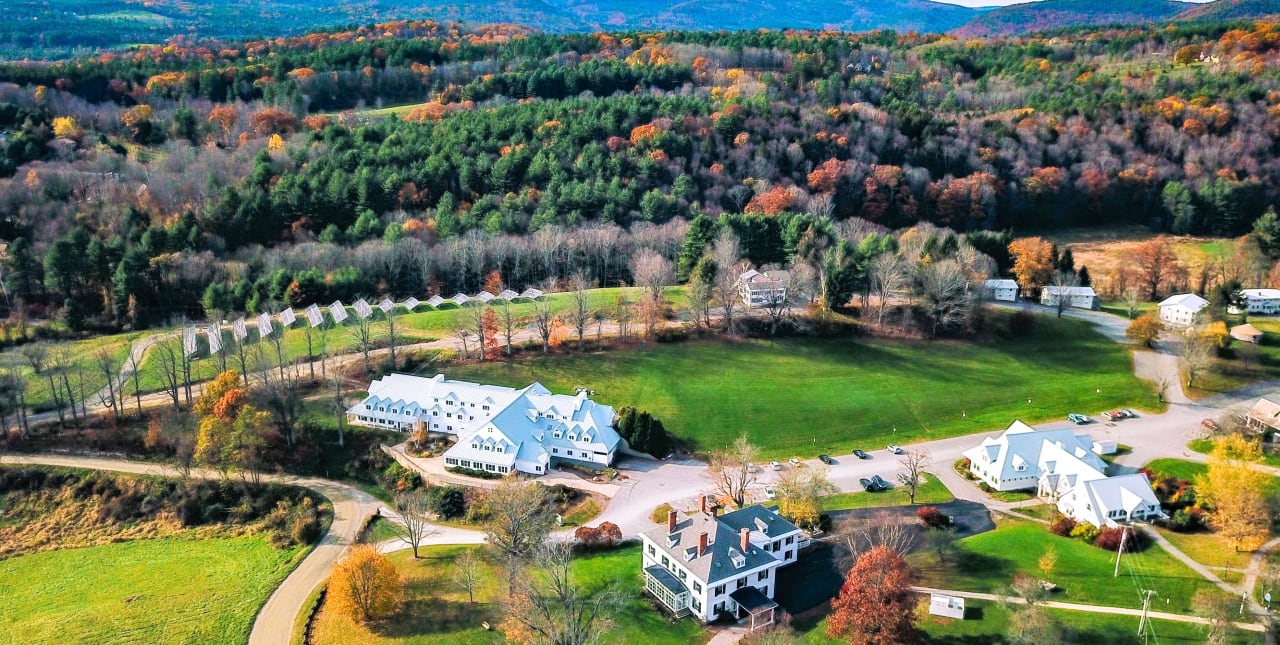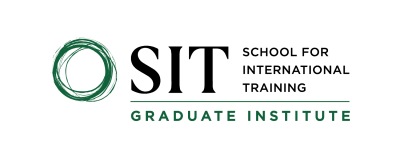
Global Masters in Sustainable Development Practice (Full-Time)
SIT Graduate Institute

Key Information
Campus location
Quito, Ecuador
Languages
English
Study format
On-Campus
Duration
1 year
Pace
Full time
Tuition fees
USD 45,445 / per year
Application deadline
Request info
Earliest start date
Request info
Introduction
Learn how to integrate policy, scholarship, ethics, and participatory practice to achieve sustainable development goals.
Please note that SIT will make every effort to maintain its programs as described. To respond to emergent situations, like COVID-19, however, SIT may have to change or cancel programs.
Why a Master's in Sustainable Development Practice?
Grounded in SIT’s unique brand of experiential, place-based learning, explore how global health crises, economic inequality, natural resource degradation, and political and ethnic conflict are interconnected, requiring a new generation of highly educated, innovative, multidisciplinary development practitioners.
Starting in Quito, Ecuador, a city high in the Andes, you will explore the challenges of one of the most biodiverse countries in the world while learning from faculty, guest lecturers, and experts in the field. Study ecological impacts, forest regeneration, sustainable land practices, and conservation on an excursion to northern Ecuador’s patchwork of cloud forests. Excursions may also include trips to the coast.
Spend your second semester in Africa, splitting your time between Cape Town in South Africa, and the smaller river city of Lilongwe, Malawi. For 15 weeks, you will engage in comparative analyses of how design thinking, monitoring and evaluation, economics, resource management, health policy, and trade are affected by local needs, diverse livelihood practices, cultural identities, and varied histories of colonization and resistance. Though based in the city, you will examine sustainable and regenerative development practices in urban, peri-urban, and rural locations during site visits and fieldwork.
In the final semester of this one-year program, you will spend 10 to 12 weeks in a full-time practicum in a role and location of your choice, drawing from SIT’s worldwide professional networks. You will gain the experience and hands-on skills you need to attain your career goals and will also complete a capstone paper.
The SIT Master’s in Sustainable Development Practice offers you a chance to obtain professional skills while conducting research and fieldwork in a highly competitive global environment. As a graduate, you’ll be prepared to integrate policy, scholarship, ethics, participatory practice, and lifelong learning to achieve sustainable, global development goals in the 21st century.
Program Sites
Quito, Ecuador
In Quito, Ecuador’s capital, learn development practices in a multicultural, stratified society that has experienced political upheaval affecting multiple systems. Witness a dominant civilization in crisis, providing key opportunities for you to study how global health, economics, and culture impact the quality of life in urban and indigenous communities.
Excursion highlights may include:
- Mashpi Shungo Rainforest Biodiversity Reserve
- Valle de Intag, Cotacachi
Cape Town, South Africa
The legislative capital of South Africa, Cape Town is a world-renowned port city, famous for its natural beauty and is the recipient of many international travel awards. It is also regarded as the most unequal city, within the world’s most unequal country. Because of its history, politics, geography, and natural resources, Cape Town is a compelling location from which to examine the tensions, contradictions, and consequences of the global development agenda, and allows for deep insight into the implementation of the Sustainable Development Goals within complex socio-economic contexts. Learn from case studies delving into the core issues of development practice, such as community analysis and assessment; local participation in project design and implementation; and the methods and tools for monitoring and evaluation.
Excursion highlights may include:
- Visit a host of NGOs or community-based organizations working in formal and informal urban environments.
- The field-based practice of design thinking with real-world challenges.
- Arniston, the last historical fishing village in South Africa (and a heritage site).
Lilongwe, Malawi
Malawi will provide you with an ideal case study for analyzing the ongoing and occasionally contentious discussions among members of government, civil society, and local citizens on development initiatives. Of particular significance to your master’s degree will be the exploration of the ways in which cultural traditions, drought, ecology, migration, and international aid regimes affect agricultural enterprises and natural resource management in an environment of increasing climatic uncertainty.
Excursion highlights may include:
- Permaculture Paradise Institute, Mchinji
- One-week rural homestay, Ntcheu District
Admissions
Curriculum
Coursework
With SIT's experiential curriculum, you will learn how to put theory into practice.
Semester One: Ecuador (12 Credits)
- Foundations of Sustainable Development
- Critical Issues in Global Health
- Development Economics
- Culture and Development
- Professional Development Seminar
- Practitioner Inquiry
Semester Two: South Africa/Malawi (15 Credits)
- Negotiation, Mediation, and Dialogue
- Monitoring, Evaluation, and Learning
- Design Thinking, Technology, and Development
- Sustainable Natural Resource Management
- Gender, Agriculture, and Climate Change
- Professional Development Seminar
- Practitioner Inquiry
Semester Three: Practicum (9 Credits)
- Development Practice Practicum
- Capstone Project
- Capstone Seminar
Professional Practicum
A cornerstone of SIT’s Development Practice master’s program is the practicum. This will allow you to apply learning from the classroom directly to real-world settings while getting hands-on, professional experience you can put to immediate use after you graduate.
For your final semester, SIT and your advisor will support you in finding an approved practicum in a role and location of your choice, aligning with your career goals. This practicum experience will give you the opportunity to work in the field, as well as expand your professional network.
During the practicum phase, you will remain engaged with faculty and other students and receive course credit for documenting the integration of your knowledge and skills while working in a professional context.
Program Outcome
Upon successful completion of the program, students will be able to:
- Contextualize the current systems that have led to growing inequality, poverty, environmental destruction, and unsustainable ways of living within the framework of sustainable development theory and practice.
- Apply the tools of participatory inquiry and design to bring about transformative action that engages with urgent challenges, such as poverty and inequality, conflict over natural resources, and environmental degradation, in the field of sustainable development.
- Apply social-ecological systems-thinking, practical skills, leadership capacity, and the sense of innovative and imaginative possibilities within the areas of sustainable development and resilience.
- Design, implement, manage, and evaluate a project based on the needs of a locality and in collaboration with multiple stakeholders.
- Compare global perspectives on development, sustainable development, and regeneration across different geographical, socioeconomic, cultural, and political contexts.
- Identify the linkages across policy instruments, social complexities, human health risks, ecological system dynamics, technological innovations, and financial models that can advance integrated sustainable development solutions.
Career Opportunities
Career Paths
Students who have graduated with this degree have worked in careers such as:
- Career development specialist
- Foreign Service officer
- Monitoring and evaluation officer
- Program manager in sustainability
- Program manager in food and nutrition security
- Public health analyst with a government agency
- Independent consultant in the nonprofit sector
- Director, government development policy
- Senior policy associate